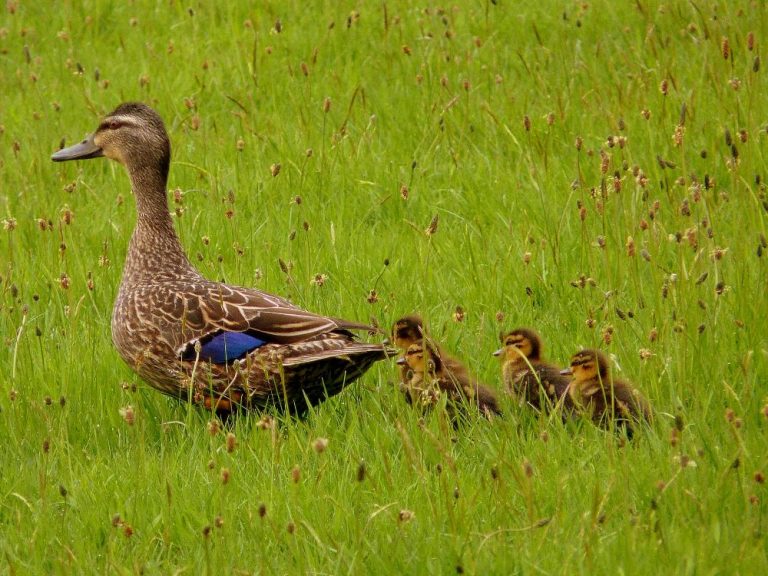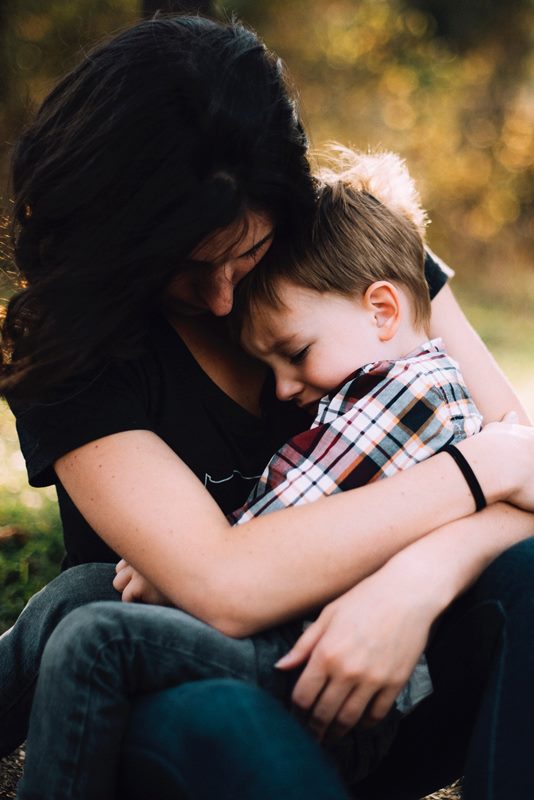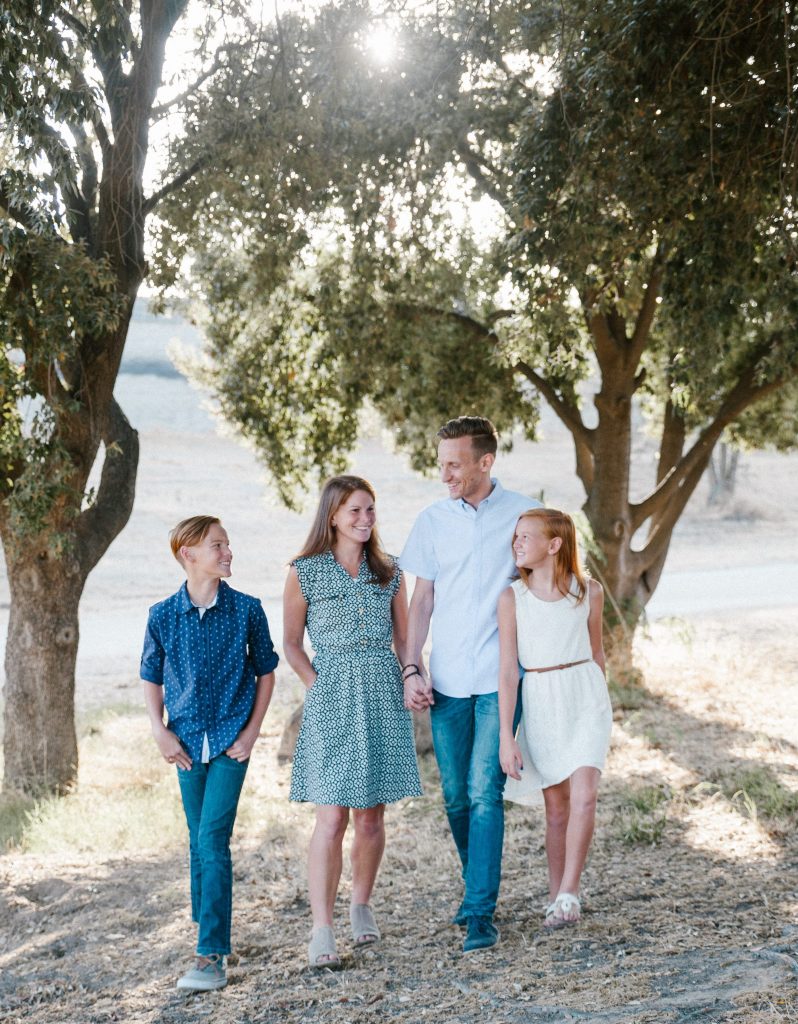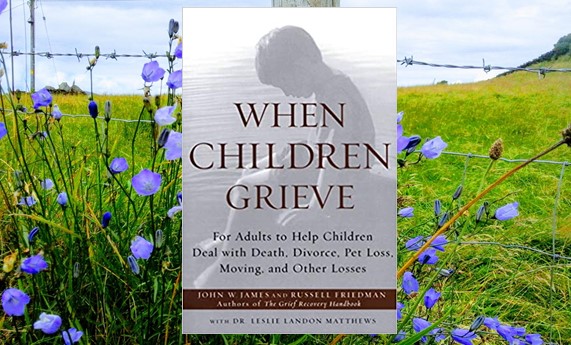Helping Children With Loss
How Do You Help a Grieving Child?

We know how difficult it can be to find the right words to comfort a child. We don’t want to say the wrong thing, but we also want to connect with the child and offer our support. Finding this balance is challenging if you don’t have the right tools for the job.
Well meaning adults often try to comfort children by saying things like:
“Don’t cry, he wouldn’t want you to be sad”.
“We’ll get you a new dog/cat/toy.”
“Think of all the friends you’ll make at your new school!”
“Don’t worry, I’m sure she’ll get better soon.”
“There’s plenty more fish in the sea.”
“It could always be worse.”
“Don’t be scared, it will be fine.”
“Look on the bright side.”
“Now you’ll get to have two birthday parties, one at your Mum’s and one at Dad’s!”
Unfortunately, these well-intentioned statements often make the problem worse. The child may stop crying to please you, but in turn receives the message that it’s not okay to grieve.
Wouldn’t it be nice to know what to say or do when a child comes to you for comfort? Imagine knowing the right words and actions to take with a child is grieving a loss! s
An ACE’s Informed Programme

Who This Is For
This programme was written for adults with children and teenagers in their care:
At Home
Parents, grandparents and foster parents
Aunts and Uncles
In Education
School and preschool teachers
Child Care workers and nannies
Pastoral Care Staff
After School Activities
Youth Group leaders
Scouts and guides leaders
Sports coaches
From a Health Perspective
Foster and adoptive services
Nurses, GP’s
Hospices
Social workers
Anyone Else
Any adult that has a position of trust in a child or teenager’s life.
A child will disclose their feelings to the people they feel most comfortable with, this could be anyone they know and have a connection with.
If you care about them – this programme is for you.

Those Awkward Questions
As a parent, teacher or professional who lives or works with children you have no doubt felt that sinking feeling that happens when children ask the difficult questions about death and loss, or are experiencing sad and painful feelings.
On average, most children will encounter 15 significant losses before they reach adulthood. The most common losses for children and teenagers are:
Loss of a pet
Loss of a grandparent
Moving house/ changing schools
Divorce
Death of a parent /friend/ or relative
Bullying
Having a close friend move away
Not being accepted by the university of their choice
Debilitating injury to the child or someone important to them
Covid / lockdowns
The recent pandemic has brought so much disruption into our lives and children are not immune to this. There are the obvious losses; loss of freedom to go out, after school activities, socializing, and the intangible losses; loss of feeling safe, loss of energy or aliveness.
We may think we need to teach our children to “look on the bright side” or we try and distract them with a gift or a treat.
Children may allow themselves to be distracted for a while, but the grief does not go away. It often manifests in other areas, causing serious problems in school and at home.
Warning signs of unresolved or unacknowledged grief include;
Difficulty concentrating
Reduced participation or interest in class or activities
Angry or violent outbursts
Risk taking behaviours
Trouble sleeping, nightmares
Frequent absence from school
The way we support children in their grief is vital to their further development and overall wellbeing.

Adults Go First
How often do we struggle for the right words to help our children deal with loss and grief? It’s like rummaging in the toolbox for the right tool only to find we don’t have it.
We’ve all learned how to acquire things in life but when were we taught what to do when we lose them? So we arrive in adulthood with all this misinformation about how to deal with grief.
The thing is, grief is felt in the heart not the head, so any intellectual attempt to heal grief is bound to fall flat.
Early messages have taught us – in order to fit in and not make a fuss – to bury our painful emotions, grieve alone and put on a brave face; we surely don’t want this for the children in our care?
As we learn to support children who are experiencing heartbreak, we dismantle the myths and misinformation surrounding grief and replace them with more helpful and accurate concepts. You might say we put together a new tool kit.
Children learn by example so you, as the adult, always go first by using your new tools and skills. You are then able to guide children or teens through the correct action steps that will help them deal with their loss and grief.
By teaching them how to break the cycle of burying emotions and giving them the vocabulary they need to express them, we set a new tone for the emotional health of the children in our care and change the trajectory for future generations.
Learn How to Support Children and Teenagers with Loss and Bereavement
Our “Helping Children With Loss” programme provides parents, teachers and anyone who works with children with the specific tools for helping a child of any age and/or ability level with a personal loss of any kind.
After completion of this course, participants will have the confidence and ability to communicate effectively with children and teenagers on the topics of grief and loss, as well as specific tools for helping a young person recover from bereavement.
Its techniques have been adapted for children using the evidence-based Grief Recovery Method, which has been successful at helping thousands of grievers all over the world heal from the pain of personal loss for over four decades. The programme is ACE’s informed and was created with the awareness that adverse childhood events can have a permanent impact on a person’s wellbeing.



Helping Children With Loss Programme
The Helping Children With Loss programme is a course for adults led by a certified Grief Recovery Specialist.
Attend our meetings via zoom from the comfort of your home in a small group setting. Our zoom times are scheduled in advance. We ask that you attend all four online meetings.
There will be no recording.
In just four weeks, you will gain new tools to assist the children and youth in your care, whether they are experiencing significant loss, or life’s “normal” disappointments and changes.
Throughout the program we will use “When Children Grieve” as our handbook and “workbook”. It is required reading and we will refer to it often. We will cover the myths of grief, techniques for speaking with children and teenagers about sad feelings, and action steps for dealing with personal losses.
Between each meeting you will have reading and a short questionnaire to complete. Please make sure to bring your insights to share at the next session.
Each meeting is approximately 2 1/2 hours long.
You may be able to claim the 18 study hours in this course for CPD.
HCWL will enable you to create a true connection with those you care for, and care about.
This program is interactive.
When is the next class?
Current Class is Full.
Get on the wait list for the next course, starting:
January 2022 – Dates to be confirmed soon.